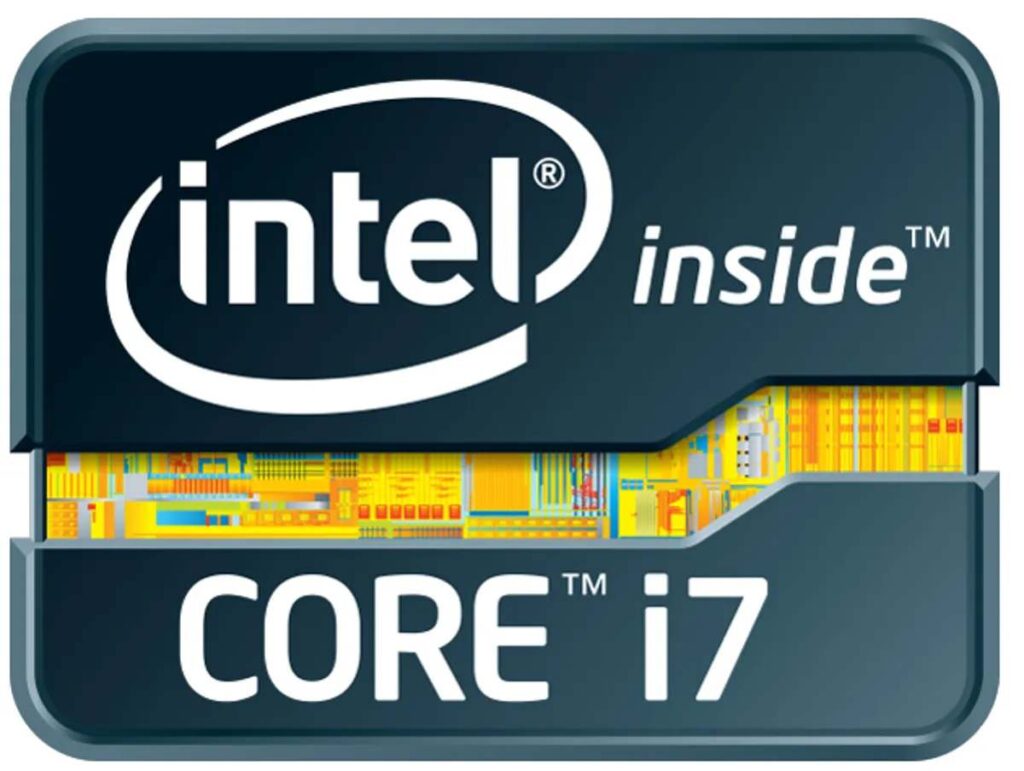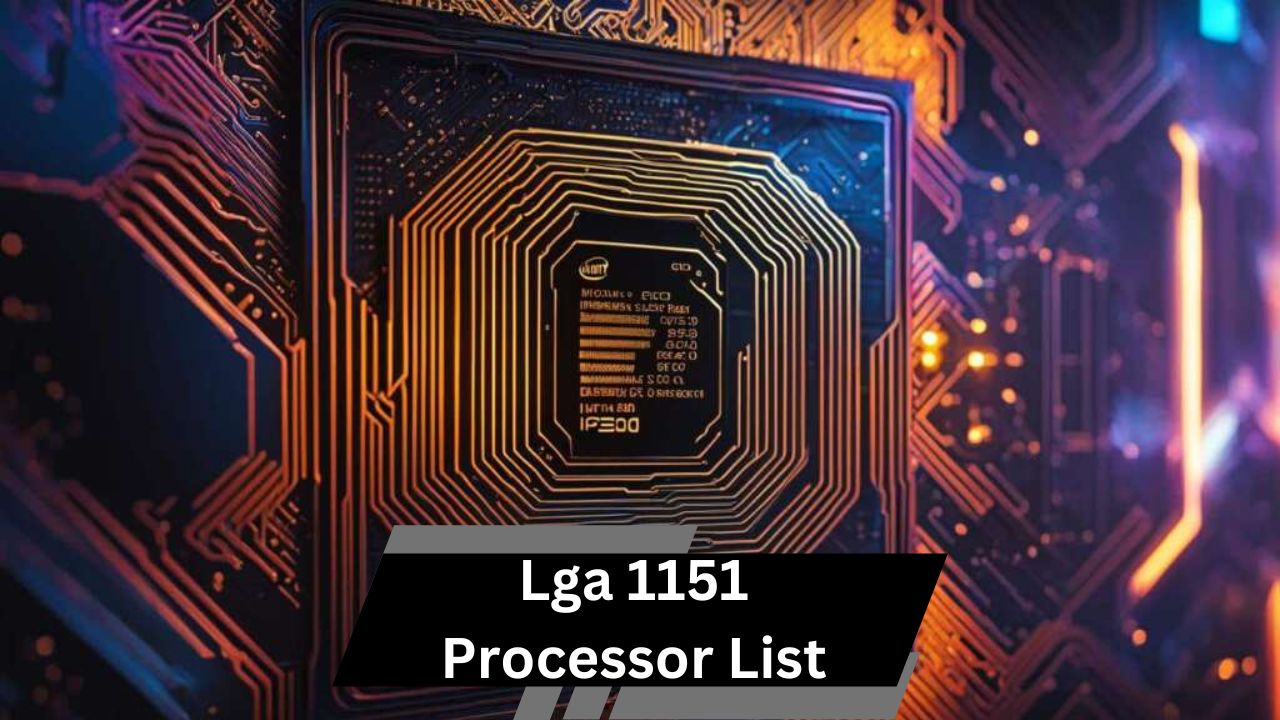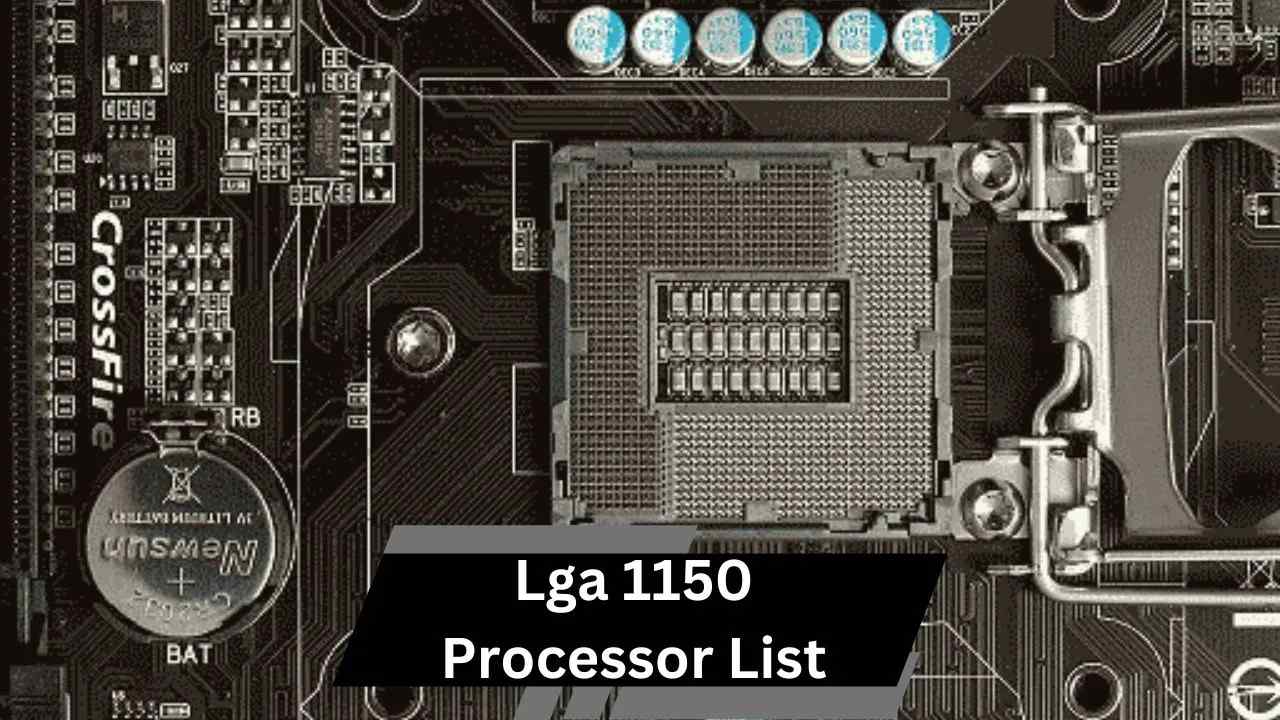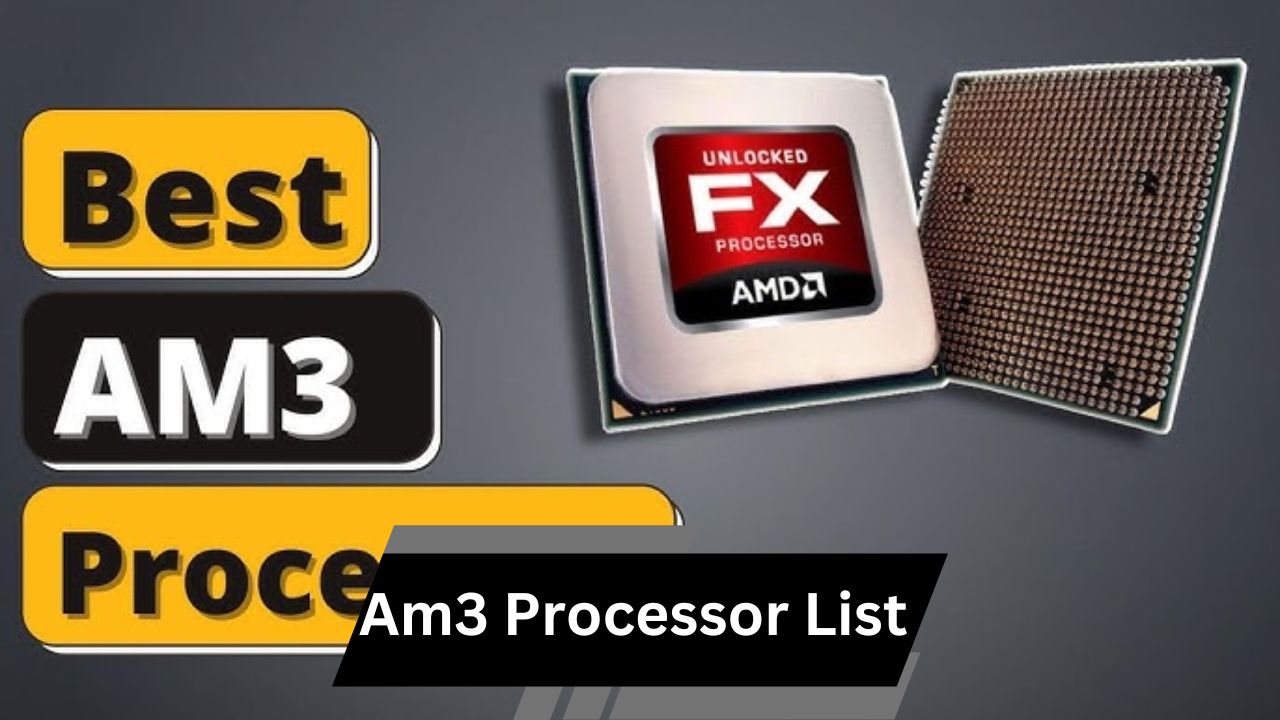Socket 1155 processors, from Intel’s 2nd and 3rd gen Core CPUs, range from high-end i7-3770K to entry-level i3-3220, offering reliable performance but now outdated.
Socket 1155, also known as Socket H2, was introduced by Intel in 2011. This socket type was used for two generations of Intel processors: the 2nd generation, known as “Sandy Bridge,” and the 3rd generation, called “Ivy Bridge.” These processors were popular because they provided good performance and efficiency. If you’re looking to understand more about these processors, this article will give you a detailed look at the Socket 1155 CPUs, their features, and how they fit into the world of computing.
The Socket 1155 processor list features Intel’s 2nd and 3rd generation CPUs, such as the i7-3770 and i5-2500K, known for reliability and solid performance. These processors support DDR3 memory and are ideal for budget-friendly builds. Designed for tasks like gaming and office work, they offer decent efficiency. While older, they remain a popular choice for affordable PC upgrades.
What is Socket 1155:
Socket 1155 is a type of CPU socket that connects the processor to the motherboard. It has 1155 pins, which is why it’s named Socket 1155. This socket supports Intel’s 2nd and 3rd generation Core processors. Compared to its predecessor, Socket 1156, Socket 1155 offered improved power efficiency and performance. This made it a popular choice for both everyday users and those who needed more power for gaming and other demanding tasks.
2nd Generation Intel Core Processors (Sandy Bridge):

Intel Core i7-2600K:
- Cores/Threads: 4/8
- Base Clock Speed: 3.4 GHz
- Boost Clock Speed: 3.8 GHz
- Cache: 8 MB L3
- TDP (Thermal Design Power): 95W
- Description: This is a high-performance processor with an unlocked multiplier, which means you can overclock it for even better performance if you’re into tweaking your system.
Intel Core i7-2700K:
- Cores/Threads: 4/8
- Base Clock Speed: 3.5 GHz
- Boost Clock Speed: 3.9 GHz
- Cache: 8 MB L3
- TDP: 95W
- Description: Similar to the i7-2600K but with slightly higher base and boost speeds, making it a great choice for heavy tasks and gaming.
Intel Core i5-2500K:
- Cores/Threads: 4/4
- Base Clock Speed: 3.3 GHz
- Boost Clock Speed: 3.7 GHz
- Cache: 6 MB L3
- TDP: 95W
- Description: A popular choice for gamers, this processor provides good performance and can be overclocked for additional speed.
Intel Core i5-2400:
- Cores/Threads: 4/4
- Base Clock Speed: 3.1 GHz
- Boost Clock Speed: 3.4 GHz
- Cache: 6 MB L3
- TDP: 95W
- Description: This processor is a more budget-friendly option compared to the i5-2500K. It’s suitable for everyday computing and moderate gaming.
Intel Core i3-2100:
- Cores/Threads: 2/4
- Base Clock Speed: 3.1 GHz
- Cache: 3 MB L3
- TDP: 65W
- Description: This entry-level processor is good for basic tasks like web browsing and office work.
Intel Core i3-2120:
- Cores/Threads: 2/4
- Base Clock Speed: 3.3 GHz
- Cache: 3 MB L3
- TDP: 65W
- Description: Slightly faster than the i3-2100, it’s suitable for everyday computing needs with a bit more performance.
Also read: Lga 1151 Processor List – A Comprehensive Overview!
3rd Generation Intel Core Processors (Ivy Bridge):
Intel Core i7-3770K:
- Cores/Threads: 4/8
- Base Clock Speed: 3.5 GHz
- Boost Clock Speed: 3.9 GHz
- Cache: 8 MB L3
- TDP: 77W
- Description: This high-performance processor offers better power efficiency compared to earlier models. It’s great for gaming and intensive tasks.
Intel Core i7-3700K:
- Cores/Threads: 4/8
- Base Clock Speed: 3.4 GHz
- Boost Clock Speed: 3.9 GHz
- Cache: 8 MB L3
- TDP: 77W
- Description: A variant of the i7-3770K with slightly lower base speeds, but still a strong performer for high-demand applications.
Intel Core i5-3570K:
- Cores/Threads: 4/4
- Base Clock Speed: 3.4 GHz
- Boost Clock Speed: 3.8 GHz
- Cache: 6 MB L3
- TDP: 77W
- Description: Known for its good performance in gaming and general use, this processor can also be overclocked for additional speed.
Intel Core i5-3550:
- Cores/Threads: 4/4
- Base Clock Speed: 3.3 GHz
- Boost Clock Speed: 3.7 GHz
- Cache: 6 MB L3
- TDP: 77W
- Description: A slightly lower-performing option compared to the i5-3570K, suitable for everyday use and moderate gaming.
Intel Core i3-3220:
- Cores/Threads: 2/4
- Base Clock Speed: 3.3 GHz
- Cache: 3 MB L3
- TDP: 55W
- Description: This processor is a good choice for basic tasks and offers improved performance over the 2nd generation i3 CPUs.
Intel Core i3-3240:
- Cores/Threads: 2/4
- Base Clock Speed: 3.4 GHz
- Cache: 3 MB L3
- TDP: 55W
- Description: Slightly faster than the i3-3220, making it a good option for everyday computing with a bit more performance.
Choosing the Right Processor:

When choosing a Socket 1155 processor, consider these factors:
- Performance Needs: Decide if you need a high-performance CPU for gaming and heavy tasks or a more budget-friendly option for general use.
- Compatibility: Make sure the processor is compatible with your motherboard. Check the motherboard’s specifications to ensure it supports the processor you want.
- Future-Proofing: Think about how long you plan to use your system and whether the processor will meet your future needs.
FAQ’s:
1. What is Socket 1155?
Socket 1155 is a CPU socket used for Intel’s 2nd and 3rd generation Core processors, featuring 1155 pins and improved power efficiency.
2. What are some popular Socket 1155 processors?
Popular models include the Intel Core i7-3770K, i5-3570K, and i3-3220, each catering to different performance needs.
3. Can Socket 1155 processors be overclocked?
Yes, certain models like the i7-2600K and i5-3570K can be overclocked, providing enhanced performance.
4. Are Socket 1155 processors still relevant?
While Socket 1155 processors are outdated compared to newer technology, they still provide reliable performance for many older systems.
5. How do I ensure compatibility with Socket 1155 processors?
Check that your motherboard supports Socket 1155 and the specific processor model you plan to use, as compatibility is key for proper functionality.
Conclusion:
Socket 1155 processors provided a range of options for different computing needs, from high-performance models like the i7-3770K to budget-friendly choices like the i3-3220. Although this socket is now considered outdated with newer technology available, the processors that used Socket 1155 still offer reliable performance for many users. Whether you’re upgrading an old system or working with legacy hardware, understanding these processors can help you make the best choice for your needs.




